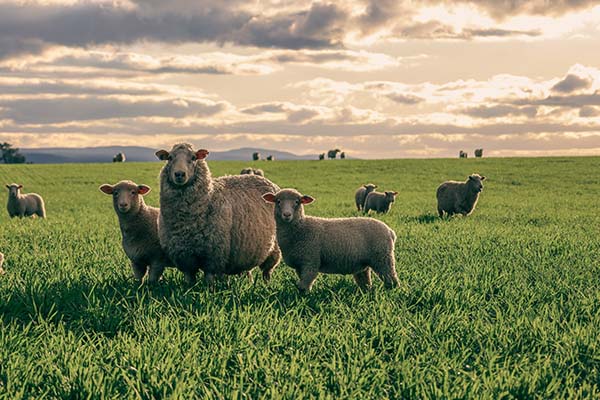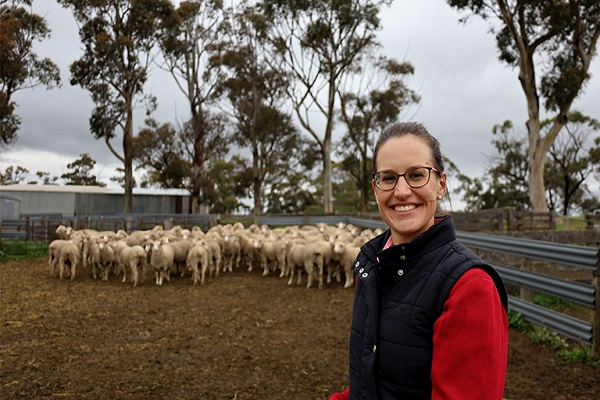Weaning is one of the most stressful events in the life of a lamb. Not only do these animals face the psychological stress of being separated from their mother, but they also encounter other stressors such as handling and change of feed that may not properly replace the requirements they have been gaining from the dam.

Stress has a big impact on appetite and the immune system, leading to an inevitable loss of condition, or weaning ‘check’ as well as an exposure to health issues from parasites or disease.
But, if managed well, with some core program practices, we can minimise the check and promote a robust animal that can flourish after weaning, both in the short and long term of the animal’s life. This is achieved by maximising the young animals’ rumen development in a particular window of opportunity. The key steps to an effective program to achieve this include:
Imprinting – Ensuring lambs are familiar with grains and supplements required while still on their mothers is key to successful uptake in the weaning yards and later in the paddock.
Stress – Controlling stress in young weaned animals is crucial. It's now absolutely possible with the right vitamin/mineral balance supplement provided in the first 48 hours post-weaning.
Animal health – Vaccinations, parasite drenches and vitamin injections to address stress-related immune suppression are a must.
Confinement feeding – With attention to smart mob management and good infrastructure, a brief confinement period to introduce great nutrition, train and socialise animals sets them up for a productive future.
Grazing period – Once adapted to a diet that maximises rumen development and well settled, continued supplementation for a few weeks enables superior growth and helps set optimum rumen development for life!
The benefits include young weaners that thrive from day one from weaning, helping avoid extended feeding periods in their later life to get them to saleable or joining weight. Ultimately, what is achieved is a flock that has greater Feed Conversion Efficiency (FCE). This means that the animals perform better on less feed. The feed surplus equates to greater profit via increased carrying capacity or crop production.
Every operation is different and that means weaning programs need to be customised to suit you, your animals, the weather conditions, your resources, available feeds and budget. That’s why the Elders Livestock Production Advisors are trained to individually develop weaning systems that are flexible enough to be adapted to suit every operation. Call for a consultation now.
Article written by Elders SA Senior Livestock Production Specialist Emma Shattock.

